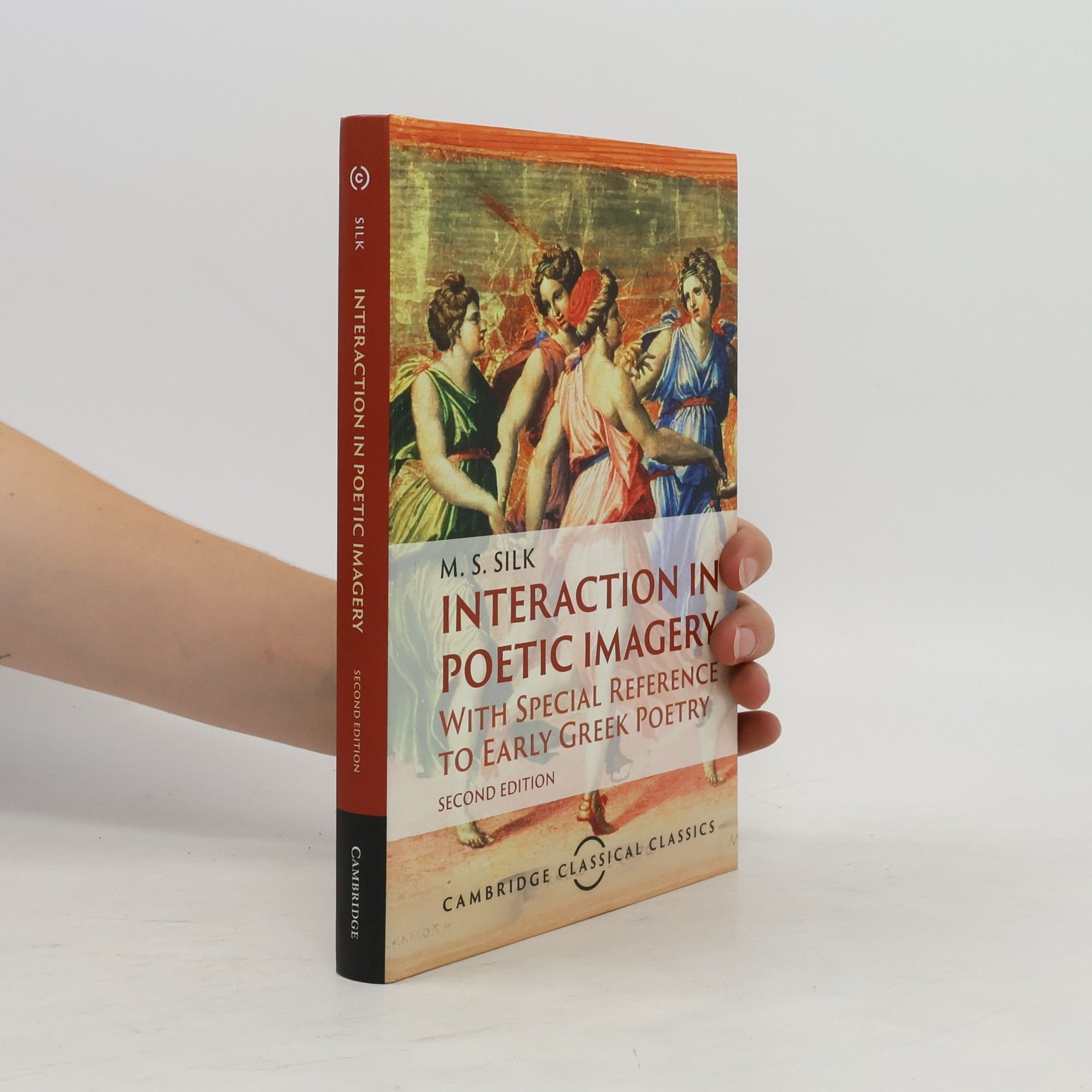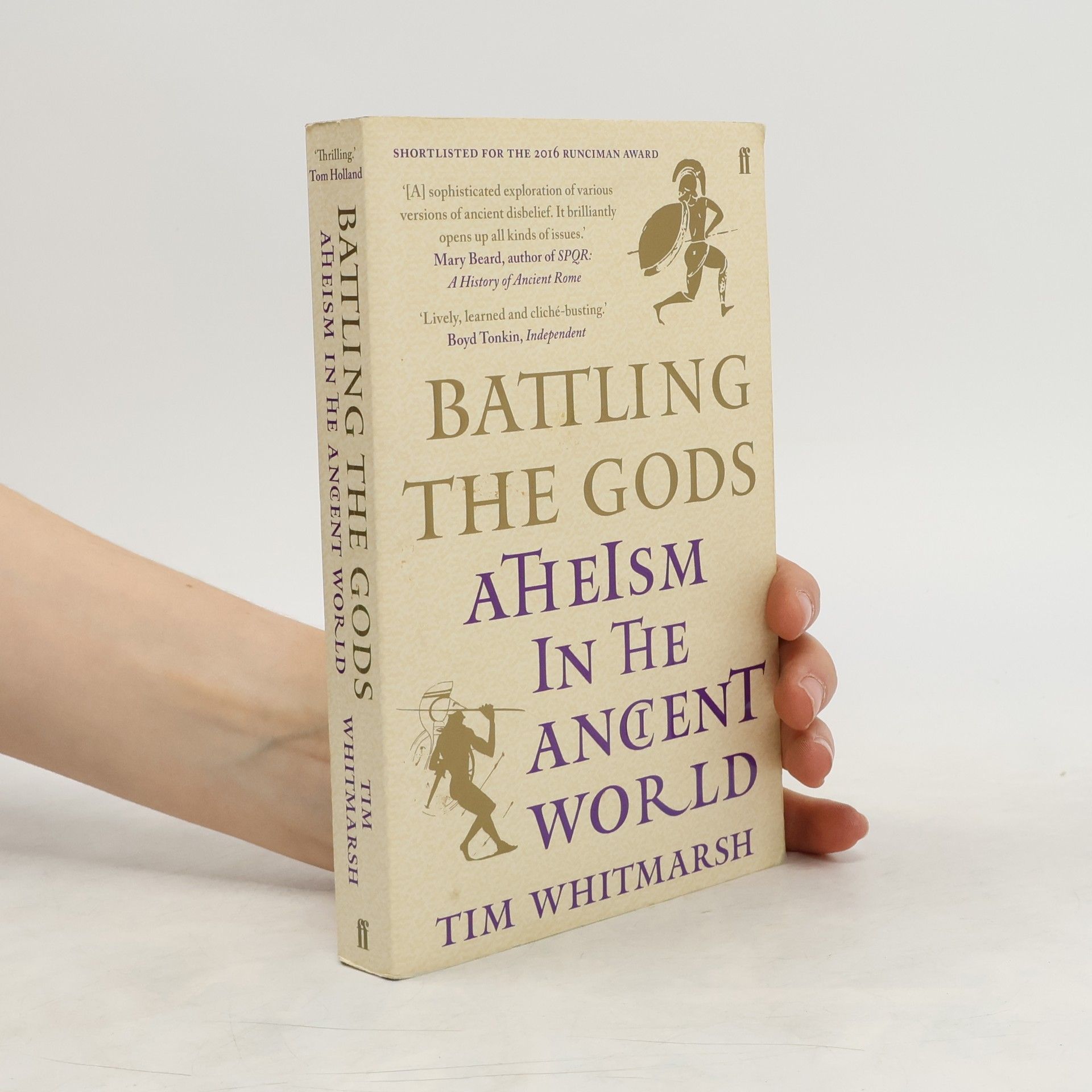How new is atheism?Long before the Enlightenment sowed seeds of disbelief in a deeply Christian Europe, atheism was a matter of serious public debate in the Greek world.
Tim Whitmarsh Libri
Tim Whitemarsh è un distinto studioso della cultura greca, il cui lavoro approfondisce la letteratura e la società dei periodi ellenistico e romano. Le sue analisi penetrano nelle profondità del pensiero antico, esplorando temi come la credenza, lo scetticismo e la ricerca di significato in un mondo in evoluzione. Lo stile di Whitemarsh è noto per la sua erudizione e la sua capacità di far rivivere il passato al lettore moderno, offrendo una visione avvincente delle vite e delle menti dei nostri antichi predecessori.





Cambridge Classical Classics: Interaction in Poetic Imagery
With Special Reference to Early Greek Poetry - Second Edition
- 318pagine
- 12 ore di lettura
This path-breaking book has made an unusual and original contribution to literary theory by means of a study of the literature of ancient Greece. It investigates an aspect of poetic imagery in the practical context of Greek lyric and drama up to and including Aeschylus and Pindar. Several hundred passages are systematically examined, with many passages from English verse introduced to provide illustration. Using these, Michael Silk formulates a new critical concept, 'interaction', which characterises certain features of metaphor and other imagery and explores in detail their nature and significance. He then proceeds to discuss related issues in the fields of stylistics and literary theory, give fresh insights into several features of ancient literature, and - above all - make important contributions to the theory and practice of 'literary lexicography' in a dead language. This reissue contains a substantial new Introduction engaging with critical and scholarly developments since first publication.
Rome's Age of Revolution
- 384pagine
- 14 ore di lettura
How did Christianity, starting out as a minor offshoot of Judaism, grow into an international faith that shaped the world as we know it? Rome’s Age of Revolution corrects the triumphalist narrative that the Christian message was so persuasive, and indeed superior, that people converted in huge numbers, abandoning their pagan beliefs, thereby turning a small persecuted sect into the state religion of the Roman Empire.Tim Whitmarsh shows that Christianity would never have succeeded if it had not taken advantage of the infrastructure and culture of the Roman Empire; in turn the new religion was indelibly shaped and transformed by Roman beliefs and ideas, especially those circulating in the Greek-speaking, or Hellenistic, eastern parts of the empire. This radical transformation, Tim argues, can only be described as a revolution. The consequences are with us to this day.
Beyond the Second Sophistic
- 296pagine
- 11 ore di lettura
The “Second Sophistic” traditionally refers to a period at the height of the Roman Empire’s power that witnessed a flourishing of Greek rhetoric and oratory, and since the 19th century it has often been viewed as a defense of Hellenic civilization against the domination of Rome. This book proposes a very different model. Covering popular fiction, poetry and Greco-Jewish material, it argues for a rich, dynamic, and diverse culture, which cannot be reduced to a simple model of continuity. Shining new light on a series of playful, imaginative texts that are left out of the traditional accounts of Greek literature, Whitmarsh models a more adventurous, exploratory approach to later Greek culture. Beyond the Second Sophistic offers not only a new way of looking at Greek literature from 300 BCE onwards, but also a challenge to the Eurocentric, aristocratic constructions placed on the Greek heritage. Accessible and lively, it will appeal to students and scholars of Greek literature and culture, Hellenistic Judaism, world literature, and cultural theory.
Narrative and Identity in the Ancient Greek Novel
- 312pagine
- 11 ore di lettura
This book explores the popularity of the Greek romances during the Roman Empire and their contribution to understanding Greek identity.